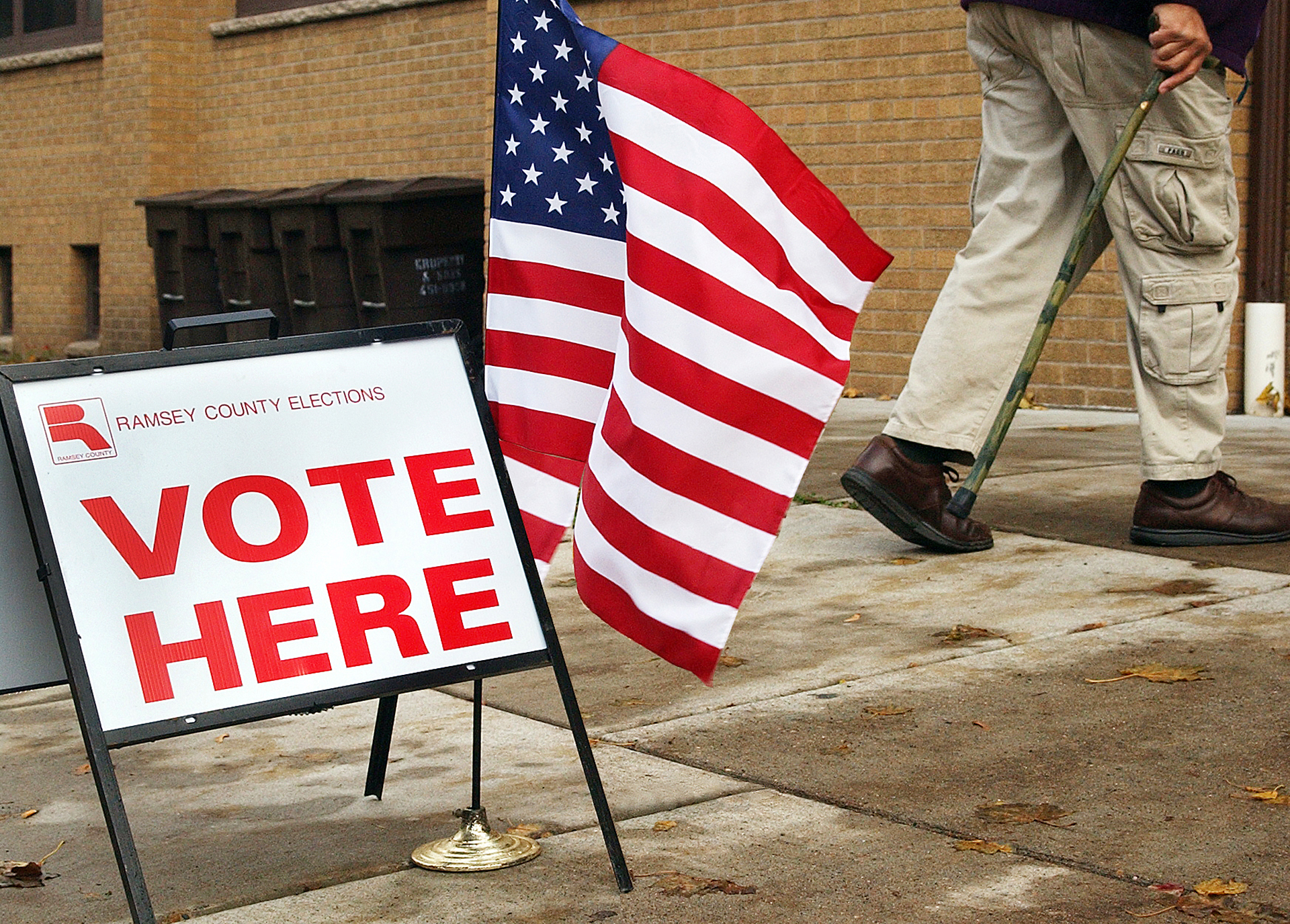House committee votes along party lines for election security appropriations

Whether it’s questioning the legitimacy of what happens on Election Day or people taking things too far with election judges, political attacks have become more common.
And they’ve potentially put people in danger.
“It’s happening across the country and it’s happening here in Minnesota,” said Rep. Emma Greenman (DFL-Mpls), who sponsors bills to fund security enhancements and aim to better protect election workers.
HF3870, as amended, would provide $5 million for local units of government for election security needs. HF3666, as amended, would create legal parameters — including civil and criminal penalties — for interfering with an election official’s performance of duties, such as intimidation, hindering the election process and obstructing access.
The funding bill was approved Friday by the House State Government Finance and Elections Committee on an 8-5 party-line vote. Due to a time constraint, the interference bill was held over for further discussion.
Neither has a Senate companion.
“Our 87 counties and hundreds of cities and townships play a critical role in administering our elections. It’s important we give them the resources they need to enhance their security,” Greenman said.
That would be assisted with $5 million that would go for things such as physical safety enhancement at polling places, updated security in elections system storage areas, and training for local election officials and judges. Local officials would determine the needs.
“We want to be proactive,” Greenman said.
Nicole Freeman, government relations director for the Office of the Secretary of State, said several jurisdictions have recently performed a physical security audit provided by the Department of Homeland Security. “Grant funding would eliminate some of the local costs,” she said.
Per the bill, “A county is eligible to receive a grant of no less than $30,000. The remaining grant funds must be distributed based on the citizen voting age population of each political subdivision. If both a county and political subdivision within the county apply for additional funds based on citizen voting age population, the secretary of state must award 20 percent of the funds to the county and 80 percent to the political subdivision.”
Republicans questioned the bill’s need, noting, in part, no specific examples of problems have been shared.
“I’m hearing a ton of mights and maybes, and we could do this, there may be this, there could be this,” said Rep. Anne Neu Brindley (R-North Branch). “… It seems like a bill in search of a problem we haven’t found yet.”
“An obligatory swing at election integrity” is how Rep. Steve Drazkowski (R-Mazeppa) describes the bill. “The response from the Democrats is deafening to me. We go to spend money on something that doesn’t need money spent on it.”
Rep. Steve Elkins (DFL-Bloomington) countered the Bloomington Police Department was “on high alert” for calls from polling places because of disruptive behavior fears at the 2020 election.
Plus, he said, much of this funding could target areas in Greater Minnesota.
“When we have a grant program like this, the lion’s share of the money ends up going to where the needs are, which are smaller, more vulnerable counties … which don’t have the resources to apply this additional level of security,” he said.
Sheila Casey has been an elections worker for more than 30 years.
“Even one episode can and has resulted in an otherwise willing and enthusiastic volunteer ending their involvement because of bad behavior,” she wrote.
Related Articles
Search Session Daily
Advanced Search OptionsPriority Dailies
Speaker Emerita Melissa Hortman, husband killed in attack
By HPIS Staff House Speaker Emerita Melissa Hortman (DFL-Brooklyn Park) and her husband, Mark, were fatally shot in their home early Saturday morning.
Gov. Tim Walz announced the news dur...
House Speaker Emerita Melissa Hortman (DFL-Brooklyn Park) and her husband, Mark, were fatally shot in their home early Saturday morning.
Gov. Tim Walz announced the news dur...
Lawmakers deliver budget bills to governor's desk in one-day special session
By Mike Cook About that talk of needing all 21 hours left in a legislative day to complete a special session?
House members were more than up to the challenge Monday. Beginning at 10 a.m...
About that talk of needing all 21 hours left in a legislative day to complete a special session?
House members were more than up to the challenge Monday. Beginning at 10 a.m...